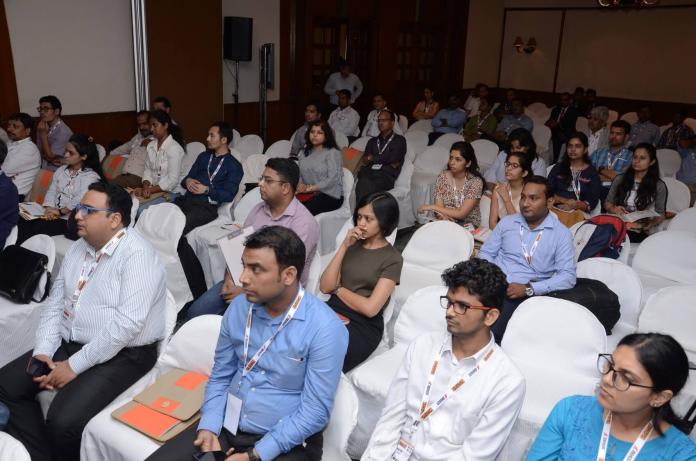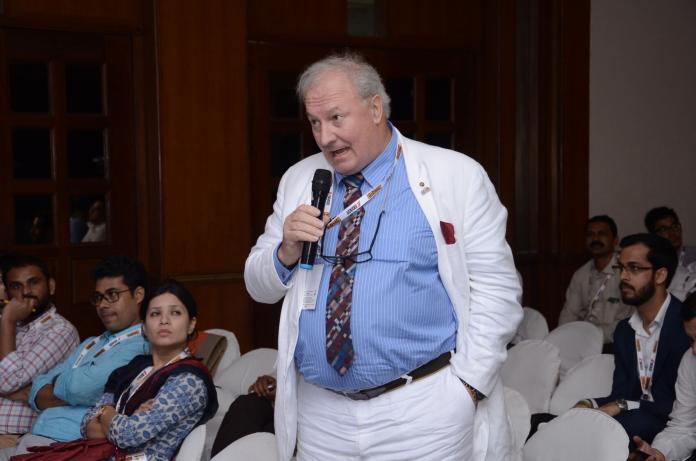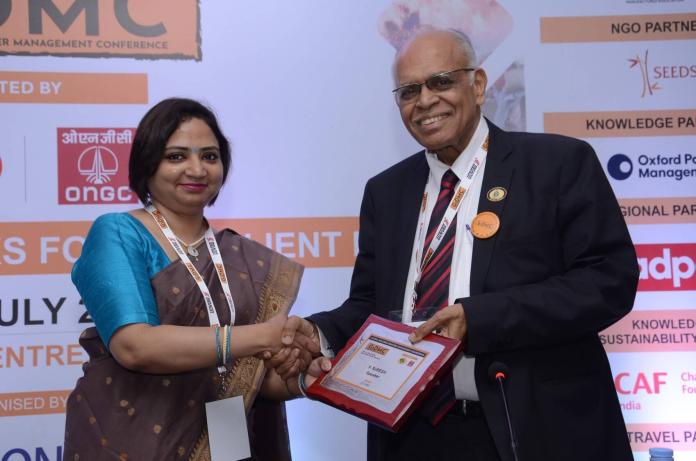OPM India hosts a session on ‘Smart, Safe, and Resilient Cities’
-
Date
July 2018
-
Area of expertiseClimate, Energy, and Nature
-
CountryIndia
-
KeywordUrban policy and planning
-
OfficeOPM India
As a knowledge partner to the Global Inclusive Disaster Management Conference, OPM India recently hosted a session on smart, safe, and resilient cities. The conference was held in New Delhi, India on 10 and 11 July 2018.
OPM’s session, moderated by Divya Sharma (senior consultant and Urban Policy and Planning team lead), witnessed a stimulating panel discussion among seasoned urban practitioners. The session took up pertinent sub-themes:
- integrating resilience into urban planning and development framework in India;
- institutional and governance challenges in integrating resilience and addressing them; and
- learning from best practices implemented in other countries.
Panellists and delegates were unanimous on the need for holistic conversation on these challenges that can lead to concrete actions to build safe and resilient cities.

Key takeaways from the session:
Call for knowledge creation and dissemination
The actions for resilience building go far and wide, and require integration of both local and global data – or what one speaker called ‘a satellite and sewer approach’. It starts from influencing policy decisions and building capacities to implement the policies: planning resilient infrastructure and services. The foremost need is to have a clear interface between global knowledge on climate change impacts and its local impacts on city systems and population. It is also very important to understand the kind of vulnerabilities climate change will induce, particularly on communities.
Need for a systems approach to resilient cities
It is important to consider a city from a systems perspective. Cities do not exist in isolation and have a deep connect with their surroundings, particularly the rural hinterlands and the peri-urban areas, requiring a regional approach to master planning and ecosystem conservation.
This will involve upgrading existing master plans and disaster management plans. Existing master plans need to consider climate resilience parameters while deciding future land use. An upgrade in the design standards and development regulations is also called for. It is often felt that the master plans and disaster management plans should be prepared in conjunction and should be aligned towards common climate-resilient, environmentally sensitive, and disaster-safe goals. Disaster management plans need to include components on early warning systems, resilient designs of infrastructure and buildings to be included as part of disaster management as well.

Allocating finance and institutional strengthening
Building resilience includes physical intervention like building resilient infrastructure or systems. Since the institutional interventions required to bring in resilience demand resources, finance has to be planned and allocated.
The question of empowering urban local bodies in India has been discussed since the 74th Constitution Amendment Act. However, the act itself could not be implemented in its true spirit. It is about time to decentralise urban planning and financial planning to urban local bodies.
This will call for a deeper understanding on who will champion the resilience agenda within cities. It would also mean identifying institutions that will represent and lead a resilience agenda and, while doing so, one will have to deal with existing jurisdictional overlaps and pre-existing mandates that may hinder smooth implementation of resilience goals.

The question of inclusive development and vulnerable population
Climate change is impacting, and will continue to impact, the poorest of poor people. Our existing development policies in the urban sector do not allow for inclusive planning and have a piecemeal approach to planning for urban poor. Limited access to affordable housing, basic urban services, health, education, and mobility make them even more vulnerable to impacts of climate change. A pertinent question to ask in the context of resilient cities is: who owns the cities? Are we only planning for the rich and how do we graduate to becoming more inclusive as cities, institutions, and systems as a whole? This is one of the primary questions in the discourse on climate resilience and cities.
As one of the speaker summed up, ‘be persistent; long game’; the need of the hour is to be persistent and consistent in our efforts towards climate resilient and disaster safe cities. While cities are complex entities with no clear-cut solutions to many problems, an integrated, planned, and iterative approach, can guide us to a better, resilient, and safe future for urban India.

